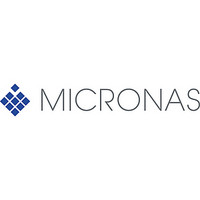MSP3410G Micronas, MSP3410G Datasheet - Page 98

MSP3410G
Manufacturer Part Number
MSP3410G
Description
Multistandard Sound Processor Family
Manufacturer
Micronas
Datasheet
1.MSP3410G.pdf
(106 pages)
Available stocks
Company
Part Number
Manufacturer
Quantity
Price
Company:
Part Number:
MSP3410G
Manufacturer:
PCTELINC
Quantity:
17 212
Part Number:
MSP3410G
Manufacturer:
MICRONAS
Quantity:
20 000
Company:
Part Number:
MSP3410G B8 V3
Manufacturer:
MICRONAS
Quantity:
379
Part Number:
MSP3410G B8 V3
Manufacturer:
MICRONAS
Quantity:
20 000
Company:
Part Number:
MSP3410G-B8
Manufacturer:
MICRONAS
Quantity:
5 790
Company:
Part Number:
MSP3410G-B8-V3
Manufacturer:
MICRONAS
Quantity:
797
Part Number:
MSP3410G-B8-V3
Manufacturer:
MICRONS
Quantity:
20 000
Part Number:
MSP3410G-B8-V3 64P
Manufacturer:
MICRONAS
Quantity:
20 000
Company:
Part Number:
MSP3410G-C12
Manufacturer:
MICRONAS
Quantity:
161
Part Number:
MSP3410G-C12
Manufacturer:
MICRONS
Quantity:
20 000
Company:
Part Number:
MSP3410G-QA-B8-V3-T
Manufacturer:
MICRONAS/PBF
Quantity:
1 239
MSP 34x0G
6.4.4. NICAM Error Rate Register
Average error rate of the NICAM reception in a time
interval of 182 ms, which should be close to 0. The ini-
tial and maximum value of ERROR_RATE is 2047.
This value is also active if the NICAM bit of
MODE_REG is not set. Since the value is achieved by
filtering, a certain transition time (approx. 0.5 sec) is
unavoidable. Acceptable audio may have error rates
up to a value of 700 int. Individual evaluation of this
value by the controller and an appropriate threshold
may define the fallback mode from NICAM to FM/
AM-Mono in case of poor NICAM reception.
The bit error rate per second (BER) can be calculated
by means of the following formula:
BER = ERROR_RATE * 12.3*10
6.4.5. PLL_CAPS Readback Register
It is possible to read out the actual setting of the
PLL_CAPS. In standard applications, this register is
not of interest for the customer.
6.4.6. AGC_GAIN Readback Register
It is possible to read out the actual setting of
AGC_GAIN in Automatic Gain Mode. In standard
applications, this register is not of interest for the cus-
tomer.
98
ERROR_RATE
Error free
maximum error rate
PLL_CAPS
minimum frequency
nominal frequency
maximum frequency
PLL_CAPS
PLL open
PLL closed
AGC_GAIN
max. amplification
(20 dB)
min. amplification
(3 dB)
00 57
0000
07FF
02 1F
1111 1111
0101 0110
RESET
0000 0000
02 1F
xxxx xxx0
xxxx xxx1
02 1E
0001 0100
0000 0000
6
hex
hex
hex
hex
hex
hex
/s
L
H
FF
56
00
14
00
May 27, 2003; 6251-476-1DS
hex
hex
hex
hex
hex
6.4.7. Automatic Search Function for FM-Carrier
The AM demodulation ability of the MSP 3410G and
MSP 3450G offers the possibility to calculate the “field
strength” of the momentarily selected FM carrier,
which can be read out by the controller. In SAT receiv-
ers, this feature can be used to make automatic FM
carrier search possible.
For this, the MSP has to be switched to AM-mode
(MODE_REG[8]), FM-Prescale must be set to
7F
6.5.7.) must be switched off. The sound-IF frequency
range must now be “scanned” in the MSP-channel 2
by means of the programmable quadrature mixer with
an appropriate incremental frequency (i.e. 10 kHz).
After each incrementation, a field strength value is
available at the quasi-peak detector output (quasi-
peak detector source must be set to FM), which must
be examined for relative maxima by the controller. This
results in either continuing search or switching the
MSP back to FM demodulation mode.
During the search process, the FIR2 must be loaded
with the coefficient set “AUTOSEARCH”, which
enables small bandwidth, resulting in appropriate field
strength characteristics. The absolute field strength
value (can be read out of “quasi-peak detector output
FM1”) also gives information on whether a main FM
carrier or a subcarrier was detected; and as a practical
consequence, the FM bandwidth (FIR1/2) and the
deemphasis (50
accordingly.
Due to the fact that a constant demodulation frequency
offset of a few kHz leads to a DC level in the demodu-
lated signal, further fine tuning of the found carrier can
be achieved by evaluating the “DC Level Readout
FM1”. Therefore, the FM DC Notch must be switched
on, and the demodulator part must be switched back to
FM-demodulation mode.
hex
= 127
Detection in Satellite Mode
dec
, and the FM DC notch (see section
s or adaptive) can be switched
DATA SHEET
Micronas














